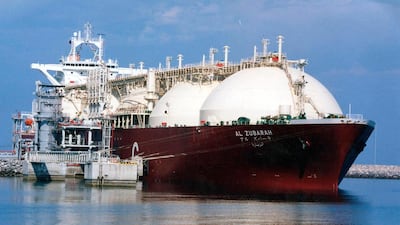Qatar announced on Monday its intention to withdraw from the 15-member Opec as it seeks to focus on its gas production.
Although the decision surprised markets, it is unlikely to affect an expected decision for output cuts from Opec and its allies, led by Russia, at its Vienna meeting on December 6.
We explain the reasons behind Qatar’s move to withdraw from Opec after 57 years of membership.
Why is Qatar leaving Opec?
Qatar, the 11th largest oil producer in Opec, is leaving the group in order to produce unfettered amounts of oil and focus on its plans to increase liquefied natural gas production (LNG) to 110 million tonnes per year from the current 77 million tonnes per day, its oil minister Saad Al Kaabi said on Monday.
Qatar produces around 600,000 barrels of oil per day, which is less than 2 per cent of Opec’s total production of 32.9m bpd in October. Saudi Arabia, the world’s biggest oil exporter and Opec’s biggest producer, pumped over 10.5 million bpd in October.
However, Qatar is the world’s biggest exporter of LNG and sits on the world’s third largest gas reserves after Russia and Iran.
____________
Read more:
Qatar will withdraw from Opec on January 1
Editorial: Qatar’s Opec pullout hinders GCC unity
Robin Mills: Doha move is a surprise, but not a severe blow
GCC summit date set as Qatar quits Opec
____________
Why does Qatar want to focus on gas production?
Australia is threatening to dethrone Qatar as the world’s biggest LNG seller as it ramps up production of the gas that is cooled to liquid to be transported by ships.
Australia’s Department of Industry Innovation and Science said in October last year the country is on track to match Qatar’s production in June 2019. Australia is in the middle of a nine-year $200 billion LNG boom.
Qatar announced in September plans to boost its LNG output to 110 million tonnes per year from its current 77 million tonne annual output.
The Arabian Gulf state has partnered with international oil companies including ExxonMobil of the US and Total of France to help it produce its current 77 million tonnes per year.
Last year, to meet the production boost, Qatar suspended a self-imposed ban on the development of the world’s biggest gas reservoir, the North Field which it shares with Iran, where it is known as South Pars.
Is Qatar the first country to leave Opec?
Qatar is the first Middle Eastern country to leave Opec, but other countries have come and gone.
Indonesia, which first joined the organisation in 1962, suspended its membership in January 2009, then reactivated it in January 2016, only to leave again in November 2016. Dwindling production from the Asian state contributed to its decision.
Ecuador, which became a member in 1973, suspended its membership in December 1992 but then joined again in October 2007. Gabon, which entered the organisation in 1975, terminated its membership in January 1995 but came back in July 2016.


